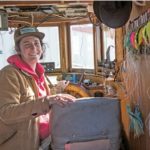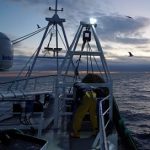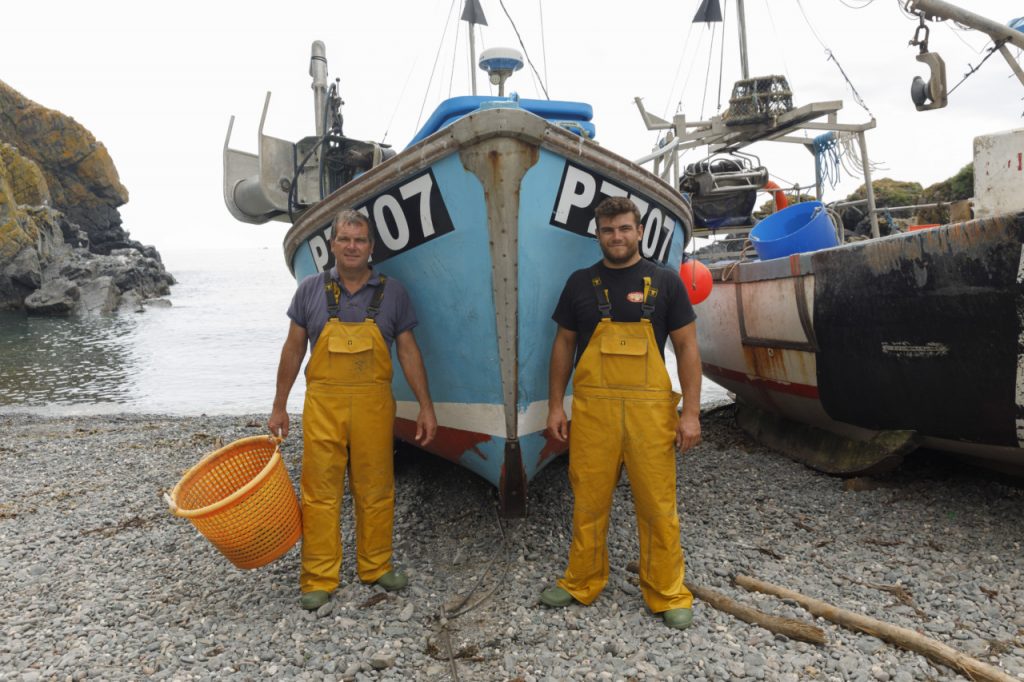Tag Archives: “moderate livelihood”
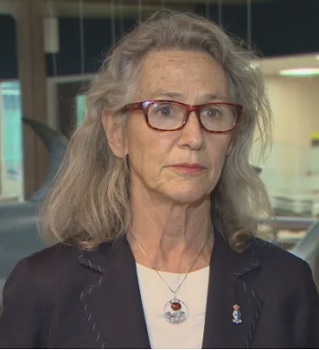
DFO: ‘no plan’ to cut commercial lobster catches to implement treaty fishery
The issue has swirled through Maritime coastal fishing communities since the federal government relaunched a voluntary commercial licence buy-back program last year to make room for more Mi’kmaw access, so far without success. The departmental statement followed a response from Fisheries Minister Joyce Murray to Conservative fisheries critic Rick Perkins during Question Period Monday. “DFO sources tell me the minister was about to expropriate 15 per cent of lobster traps from licence holders, without compensation, to give to First Nations,” Perkins said Monday. “This would be devastating for these fishermen. >click to read<13:43
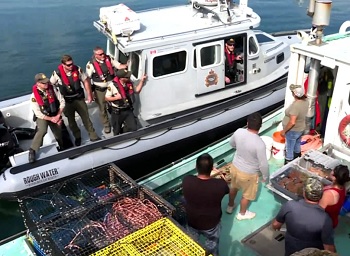
Mi’kmaw vow to keep fishing despite harassment from DFO officials
The crew of the Sadie C, a Sipekne’katik Mi’kmaw lobster boat was out on the bay exercising their treaty rights when it was surrounded by six zodiacs and one large coast guard vessel. The crew dropped ten traps, which the fisheries officers immediately seized. Marcel Marr, captain of the Sadie C, says he will keep fishing. “Someone’s got to stand here and fight the fight so it might as well be me if I want further generations or my children to participate in our aboriginal fisheries,” says Marr. >click to read< 19:54
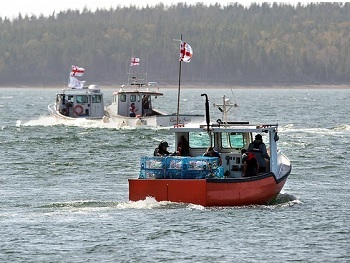
Minister Jordan issues statement on cooperative path forward with Potlotek First Nation moderate livelihood fishery
“I am pleased to announce today that we have reached an understanding that will see Potlotek First Nation fishing for a moderate livelihood and selling their catch starting Saturday, June 5, 2021.” As an interim measure, we will be recognizing those harvesters designated under Potlotek’s plan to be authorized to fish 700 jakej (lobster) traps without adding additional access and during the established season underway in Lobster Fishing Areas 27, 28, 29, 30 and 31a – which is within the Unama’ki region and aligns with Potlotek’s identified traditional district. The Unama’ki region is one of the seven Mi’kmaq districts in Atlantic Canada and Quebec, and spans Cape Breton Island. >click to read< 14:19

Jaime Battiste: Balancing conservation and fairness in a ‘moderate livelihood’ for Indigenous fishermen
What is fair to the Mi’kmaq, who have been deprived of their legal right to a practice passed down for generations? What is fair to the commercial fishermen, many of whom today are of Mi’kmaq descent, who depend on the fishery and healthy stocks for their own livelihoods? There is no easy answer. The report addresses two misconceptions that have added fuel to this fire.,,, As someone who is fluent in the Mi’kmaw language, the Mi’kmaw language has no way to describe “an individual unfettered right, to accumulate wealth.” In fact, the closest would be a pejorative term that’s closer to greed. Much like the how the government’s right to regulate has limits, the right to a moderate livelihood also has its limits and responsibilities. >click to read< 09:42
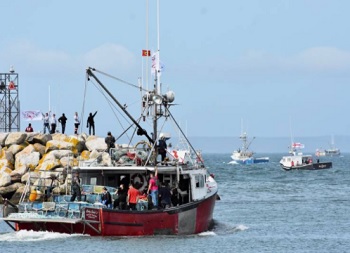
Failed policies, decisions on the fly: How the moderate livelihood fishery file blew up
Documents obtained through a freedom of information request show the federal Fisheries Department knew that 21 years of kicking the moderate livelihood issue down the election cycle had resulted in there being little rule of law on St. Mary’s Bay. The feds knew that the bay had become a pressure cooker as two communities were pitted against one another over a limited resource. When the top blew off, they turned to coming up with new policy on the fly while seeking a daily scorecard on evolving public opinion. “This is about a culture (in Ottawa) that would rather avoid any conflict at all,” said Thomas Isaac, an aboriginal rights lawyer who has served as British Columbia’s chief treaty negotiator,,,>click to read< 13:49
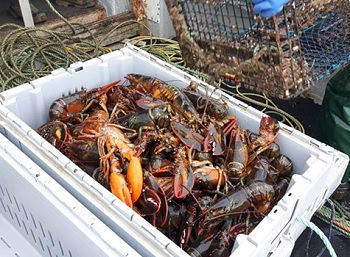
Livelihood lobster fishing cast adrift: How DFO’s inaction has history repeating itself
Its resources are in high demand by Indigenous and non-Indigenous fishers alike, and for more than 20 years it has seen tensions between the two communities turn from boil to simmer, to boil again. Recently, it made headlines internationally. Tensions in the area erupted into violence and destruction after the Sipekne’katik First Nation launched its own, self-regulated fishery, outside of the commercial season, based on Mi’kmaq treaty rights. To Alex McDonald, one of the oldest still-fishing Indigenous lobster boat captains of the area, the chaos this year was nothing new. >click to read< 08:14
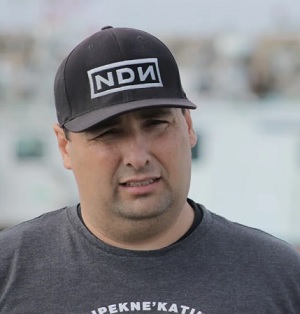
“Mixed Feelings”: Sipekne’katik chief says discussions with commercial fishers in Nova Scotia can wait
Responding to Ottawa’s decision to name Allister Surette as a facilitator in the dispute, Sipekne’katik Chief Mike Sack said he had “mixed feelings.” He said that while he was not fundamentally opposed to participating in the process, “right now, we’re not worried about that.” Surette, president and vice-chancellor of Université Sainte-Anne who has experience as a facilitator in fishery disputes, was named to the role on Friday. Surette said his work might lead to a resolution in the fishery dispute,,, Sack, however, maintained that the resolution lies in his band’s talks with the federal government, not with commercial fishers. >click to read< 16:00
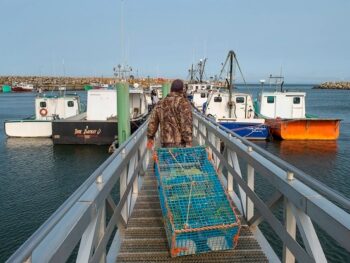
Lorne Gunter: Here’s the real back-story to the Maritimes lobster dispute
A 1999 Supreme Court decision, the Marshall decision, affirmed a supposed ancient treaty right to hunt and fish out of season. The only limitation the court placed on this apparently pre-existing right was that First Nations could earn only a “moderate livelihood” with their out-of-season activities. The problem now, we are told over and over, is the failure of the federal government over the intervening 20 years to negotiate a fisheries management framework that defines, limits and regulates “moderate livelihood.” Twenty-one years ago, I covered the Marshall case,,, The Marshall decision was an example of judicial bias and pre-conceived judgement. >click to read< 07:55
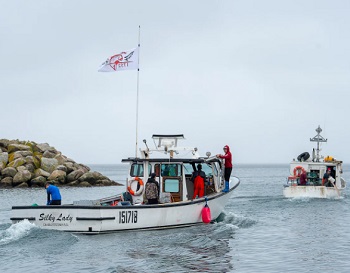
For Acadian fisherman, early Mi’kmaq fishery in N.S. bay can ‘never’ be respected
As he stands calmly splicing anchor rope, Roger LeBlanc describes the anxiety, anger and suspicion over a Mi’kmaq lobster fishery that is coursing through his small Acadian community. The threat perceived by LeBlanc, 61, is the launch of a lobster fishery by Sipekne’katik First Nation in September,,, In the weeks that followed, Indigenous traps were cut, a boat burned, vehicles were destroyed, and one lobster pound that handles Indigenous catch was damaged while another was burned down. The actions by groups of up to 200 people have drawn condemnation from across party lines in Parliament. >click to read< 13:40

Canada’s courts and governments have themselves to blame for the lobster fishery dispute
Imagine the reaction you’d have if you, a Canadian worker, in any field, were told by the courts and the government that you could earn only a “moderate livelihood.” Imagine that on top of this, you’re told that there is no definition of “moderate livelihood”, that it’ll be worked out over time. Your howls of protest would be loud and intense, and rightly so. Yet this is precisely what happened for the Mi’kmaq and Maliseet in Eastern Canada when the Supreme Court of Canada made its 1999 decision in the case of R. v. Marshall, ruling that the First Nations had a treaty right to fish for commercial purposes, but with a “moderate livelihood” restriction on that right. The Marshall ruling,,, >click to read< 16:12
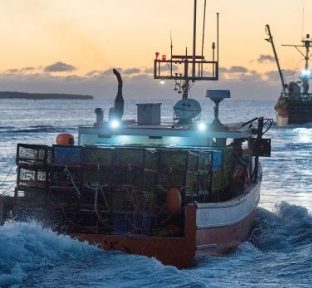
Indigenous fishermen hope to be arrested, trigger court case as Nova Scotia lobster season kicks off
As one of the most lucrative fisheries in Canada prepares for opening day, some Mi’kmaq in Nova Scotia are trying to trigger a court battle over Indigenous fishing, hoping it will see them win a greater share of the thriving lobster business. And they are daring the Department of Fisheries and Oceans to arrest them. One of them is Cheryl Maloney, an activist, law school graduate and mother of four boys. She wants her family to be able to earn the “moderate livelihood” she says the Supreme Court of Canada ruled they are entitled to in 1999. click here to read the story 09:19



































